Digital Annual Report 2022
Partners In Health, 800 Boylston Street,
Suite 300, Boston, MA. 02199
1-857-880-5100 | info@pih.org
Dr. Paul Edward Farmer
1959-2022
Open-handed, open-hearted, prolific in his affection, Paul’s very way of being in the world challenged us. He asked us to consider the structures that surround us, our conceptions of justice and mercy, and orthodoxies over what it means to be deserving.
Paul was intentional about recruiting the right people and partnerships to achieve what others thought was impossible, always with the goal of serving the most vulnerable. Compromise was never an option. He was so full of compassion for patients. He made friends everywhere he went— and everyone called themselves Paul’s friend.
Today, trees Paul planted at so many of PIH’s sites are flourishing, alongside the hospitals he saw so clearly—places he did not dream, but rather willed into being. And he left us everything we need to keep doing the difficult but essential work: the keys, the compass, books full of guidance, the template for a more just and equitable world. And, of course, he leaves us one another. We are each better because of him.

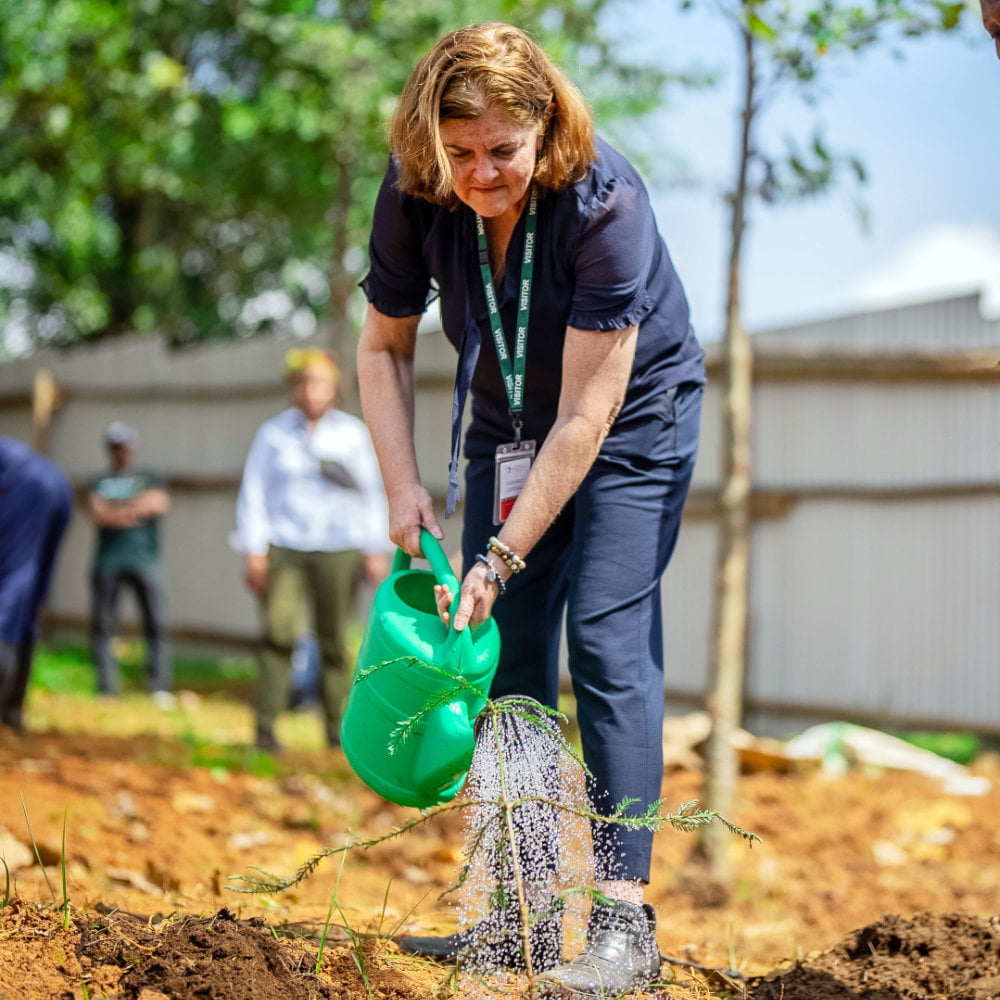
Dear friends,As I reflect on the past year, I am moved by the remarkable leadership of Partners In Health’s dedicated staff. Through some truly challenging times—from political instability to climate disasters and the ongoing COVID-19 pandemic—PIHers in 11 countries have continued to deliver compassionate health care in impoverished communities around the world—all while driving transformative change across national health care systems and advocating for a more just global health landscape.

Currently in 11 countries around the world, PIH is providing high-quality medical care while working hand-in-hand with local and national governments to strengthen health systems.
STAFF
GLOBALLY
FACILITIES
SUPPORTED
COUNTRIES CURRENTLY
SERVED

All the stages of our Theory of Change—care, training, influence, and replication—are linked and interdependent. Each stage works to strengthen the next. Direct patient care provides a training ground for new health professionals, who in turn pursue and publish clinical research. That research generates data and evidence to influence global policy and funding, which facilitate replication of successful models of care by governments enacting major health reforms.
Placing patients at the center of our work
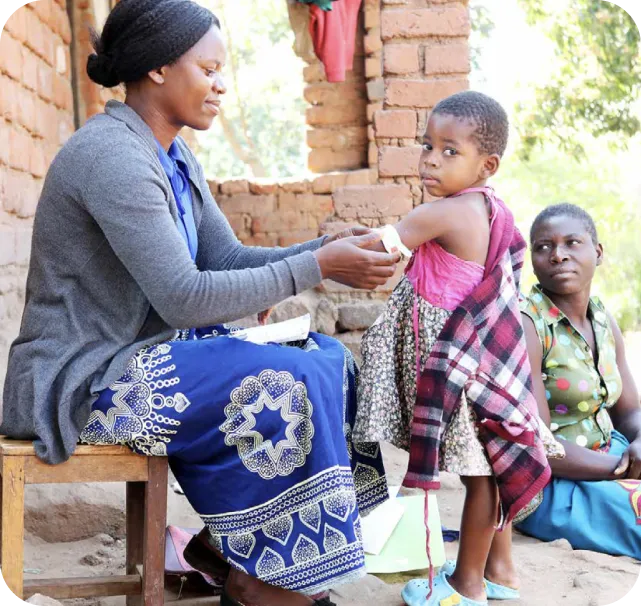
to the Maternal Health Crisis
Women in Sierra Leone face
Sierra Leone
We are expanding our work so women can look forward to childbirth as a moment to celebrate, not fear.
Alongside the ministry of health, PIH is building the Maternal Center of Excellence, a state-of-the-art teaching hospital at PIH-supported Koidu Government Hospital.
Today, thanks to investments from PIH, Koidu Government Hospital now boasts a top-notch team of clinical specialists, medications and essential equipment, and 24-hour electricity and running water.
The Maternal Center of Excellence will build on that work through specialized care for women and infants and training opportunities for the next generation of Sierra Leonean clinicians.
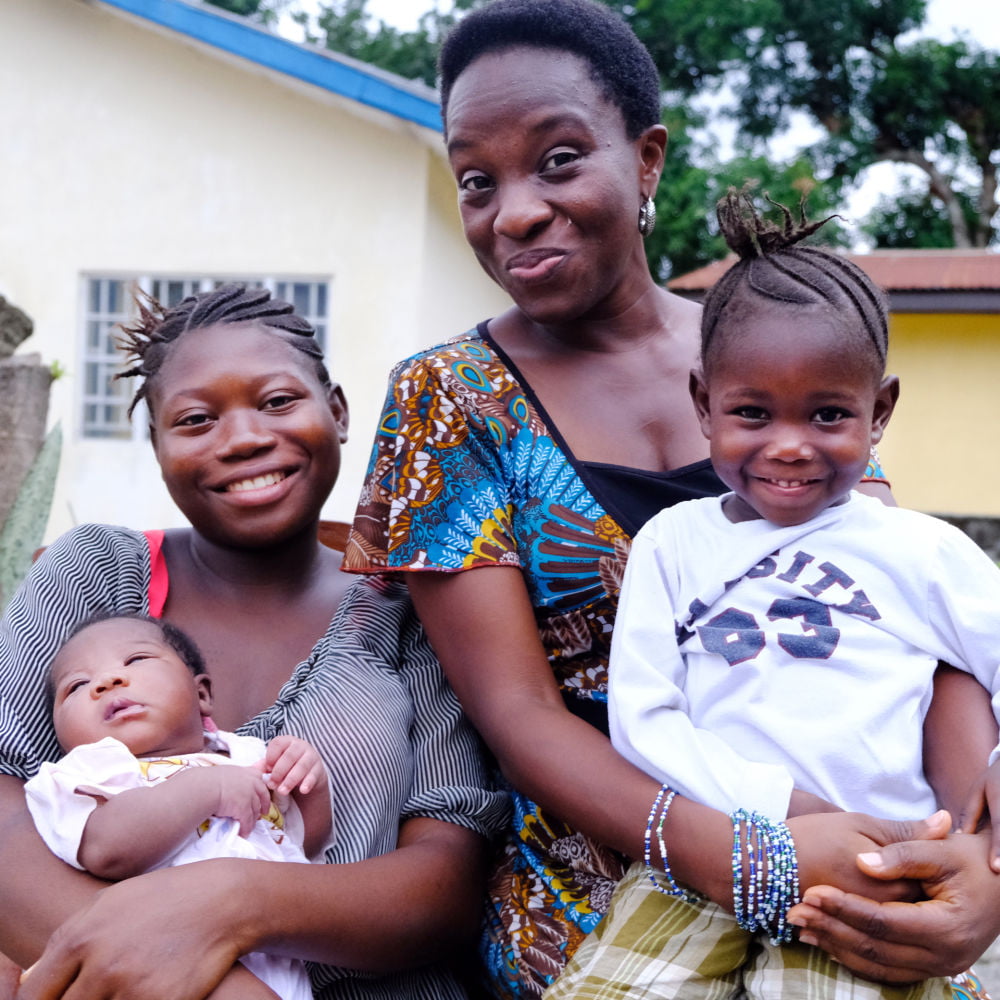
Pairing medical education
with direct clinical care

of Medical Education
Since 2012, Hôpital Universitaire de Mirebalais's medical education program has trained 187 Haitian clinicians across specialities.
Haiti
The 7.2-magnitude earthquake that struck 80 miles southwest of Port-au-Prince, Haiti, in August 2021 left more than 2,200 people dead, 1,800 injured, and hundreds of families displaced. Authorities reported 97 health centers were damaged or destroyed.
Zanmi Lasante (ZL), PIH’s sister organization in Haiti, was approached by the government and local organizations and asked for assistance in launching a comprehensive emergency response, based on ZL’s experience in critical care and response to the 2010 earthquake.
The vast majority of first responders and clinicians in the 2021 response were Haitian—including graduates of Hôpital Universitaire de Mirebalais (HUM). Last August’s earthquake highlighted the need to develop orthopedic residency and emergency nurse training programs. ZL leaders are now mapping out curricula for these programs, which they plan to launch at health facilities in Saint-Marc and Mirebalais.
Since 2012, HUM’s medical education program has trained 187 Haitian clinicians across specialties. Of those graduates, 98% chose to stay in Haiti, with 88% working in ZL-supported or other rural health facilities.
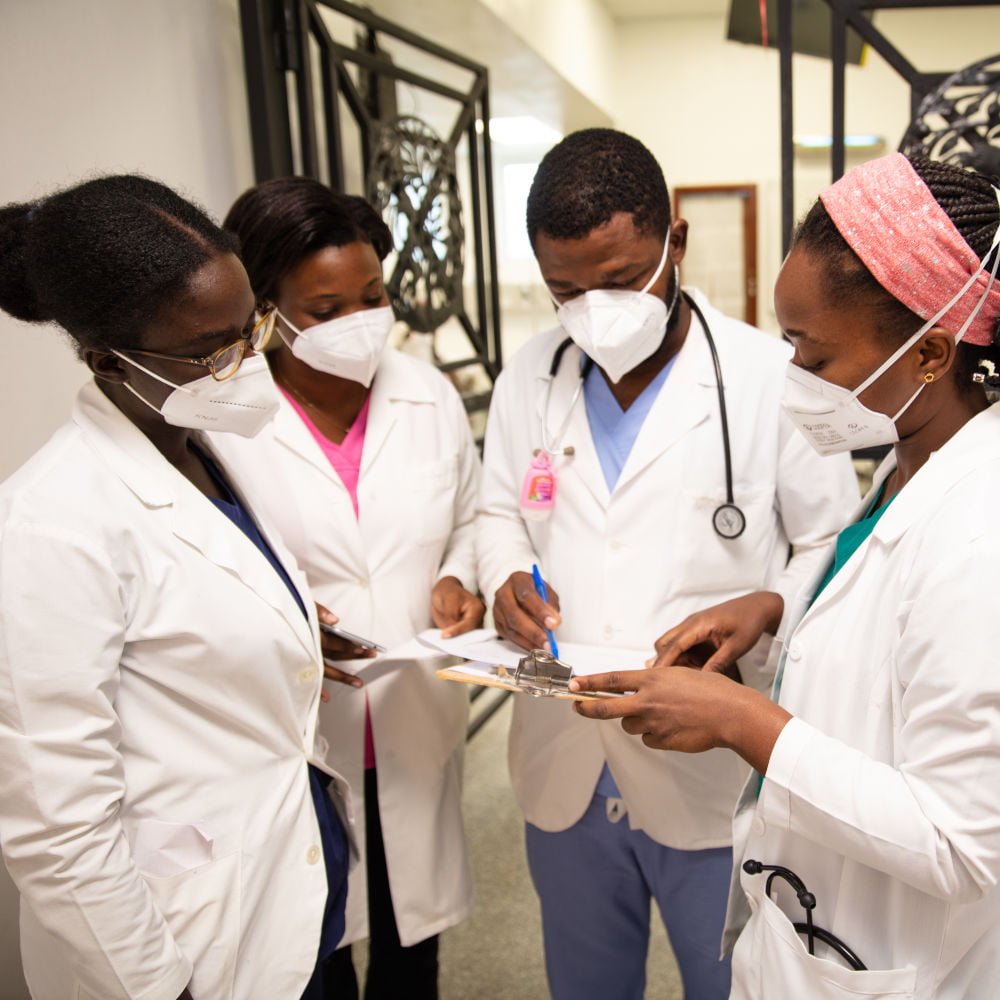
Creating systemic change through
research, advocacy, and policy

Memorial Resolution
A new coalition in the U.S. House of Representatives recently announced one of the most ambitious global health agendas in Congress: The Paul Farmer Memorial Resolution.
United States
Led by Representatives Jan Schakowsky, Barbara Lee, and Raul Ruiz, the coalition is proposing what they termed a “21st-century global health strategy,” based on Paul’s lifelong work. The resolution proposes a path toward achieving universal health care, which would prevent over 100 million unnecessary deaths per decade by shifting the flow of trillions of dollars in the global economy.
As Paul pointed out time and time again, impoverished countries have been exploited by rich countries for hundreds of years. Reversing this trend is a matter of justice. This resolution enshrines Paul’s vision for global health equity and will serve as a “North Star” for global health politics for years to come.
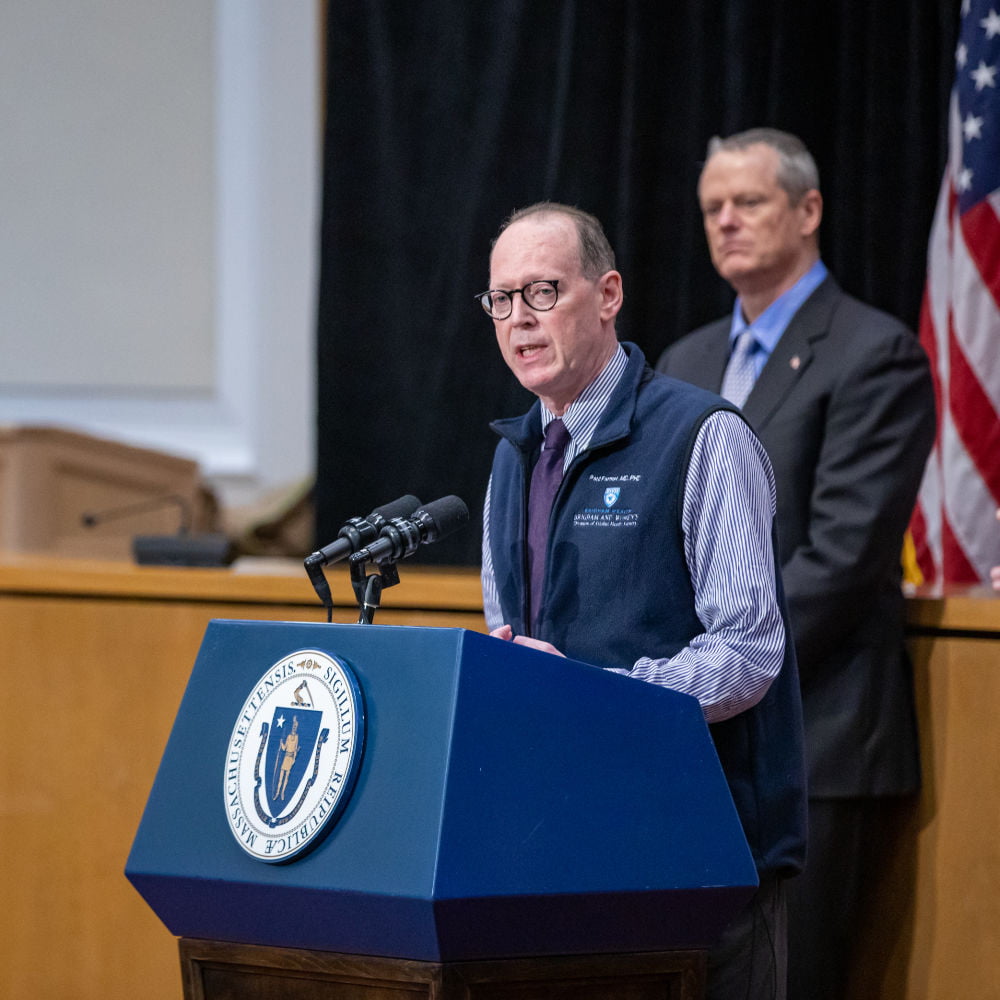
Expanding successful models
for care delivery

Strengthening Community-Led Health Systems
While helping the hardest-hit communities in the United States with their COVID-19 response, PIH saw an opportunity to advance long-term systemic change by addressing the stark inequities that have permeated the U.S. health system.
United-States
In October 2021, PIH-US was formalized and now works alongside public health and community organizations in seven locations across the U.S. to create stronger, more just health systems and a more robust community health workforce.
This year, alongside our partners, PIH-US invested over $8 million directly into community based organizations, hired over 350 community health workers, and reached over 5.5 million individuals with COVID-19 vaccine outreach, education, and social support.
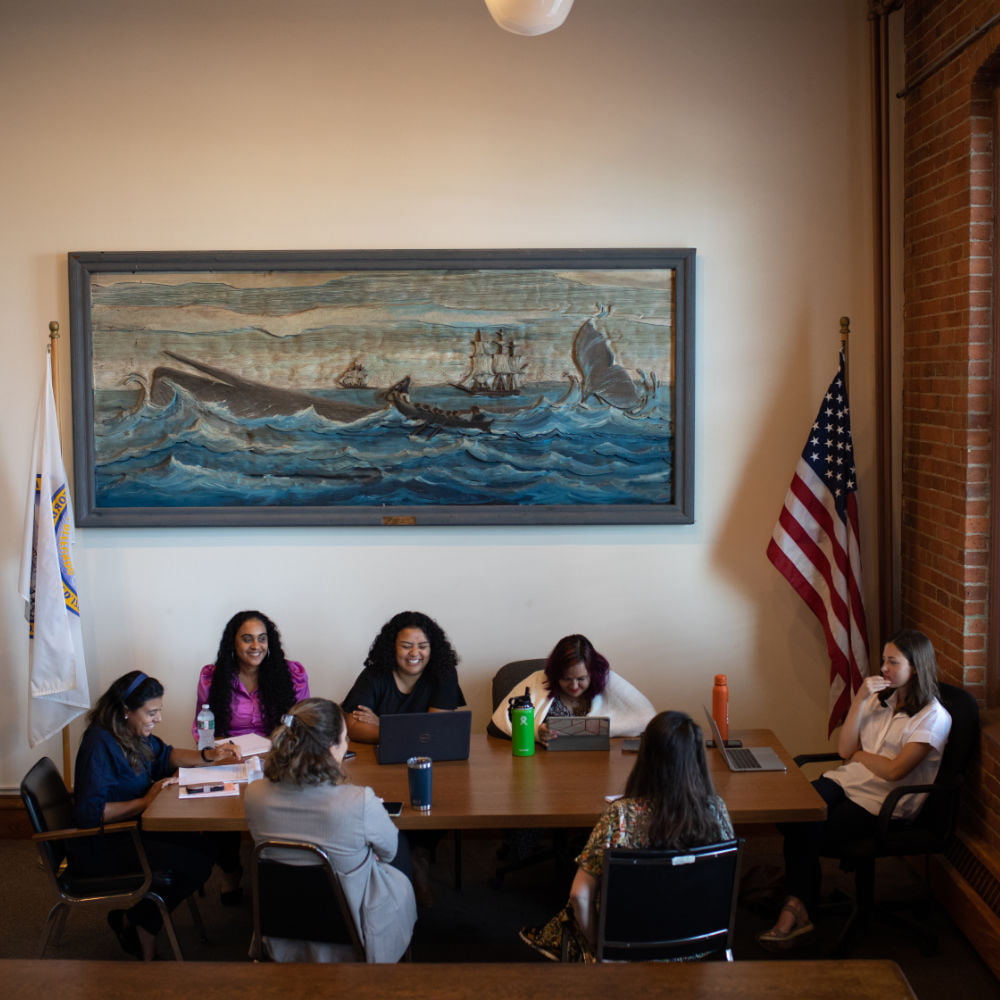
As our philanthropic partners, you accompany our patients each and every day. Through your compassionate support, you supply the resources needed to fuel our work, help us challenge the status quo, and advocate for global health equity and justice. In the following pages, you will learn how PIH supporters connected vision with passion to deliver lifesaving health care across the globe.
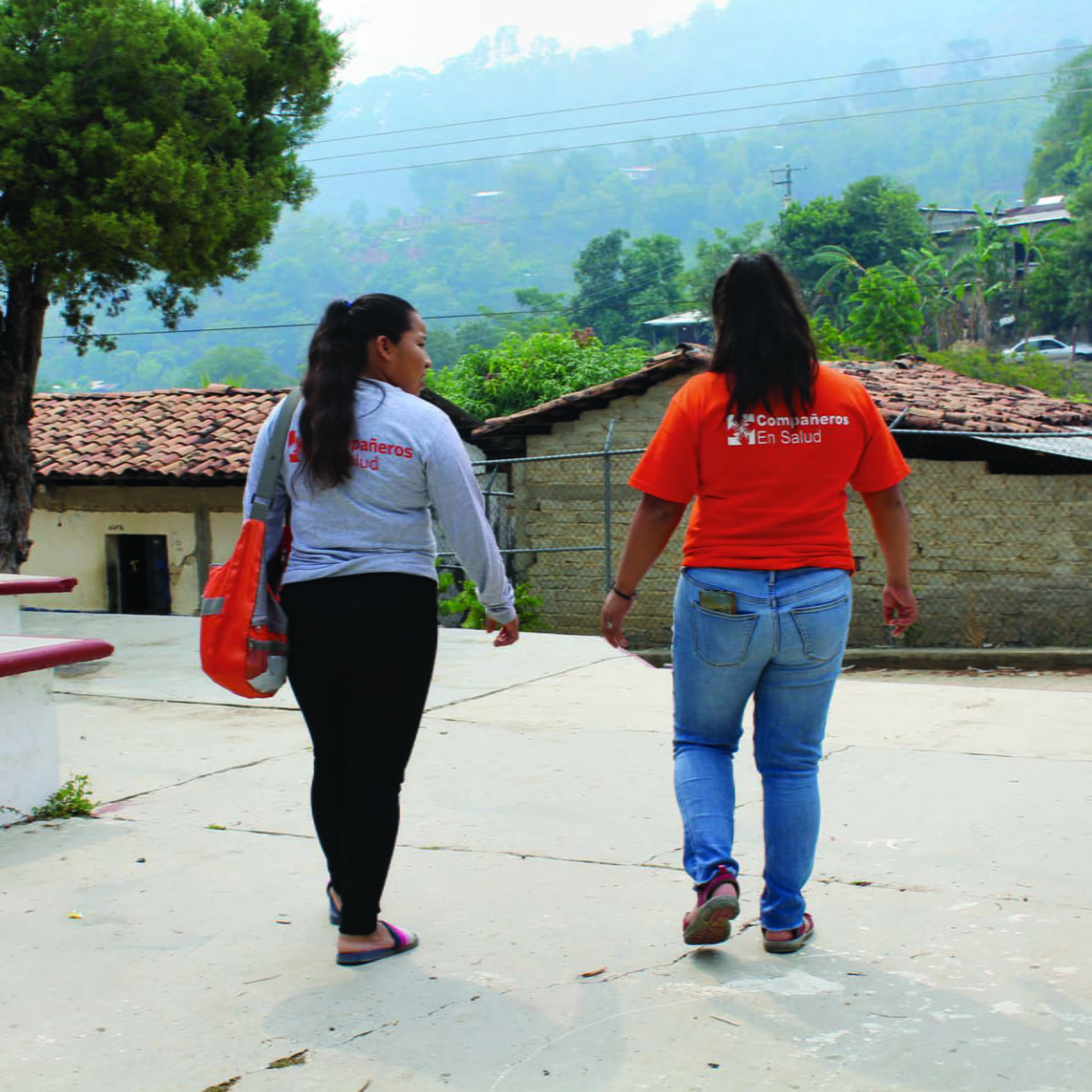
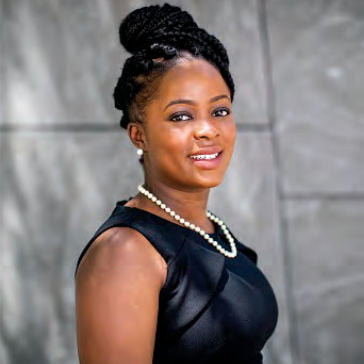
When I learned about the 2021 Haiti earthquake, I wanted to support an organization whose work I knew I could trust. PIH immediately came to mind. I first learned about PIH during the time of the devastating 2010 earthquake. I was moved by Paul Farmer’s efforts to support the people of Haiti, and his passion for the community stuck with me.
As the child of Haitian immigrants, I feel deeply connected to the culture. I was grateful for the opportunity to give back by hosting the “Black Boston for Haiti” event, benefitting PIH’s earthquake relief efforts. Often, the media portrays the poorest communities as helpless and hopeless, but with PIH I see a different perspective—one in which the people of Haiti are equipped to actively engage in their own uplift with support from the diaspora.
FARRAH BELIZAIRE
Boston, MA
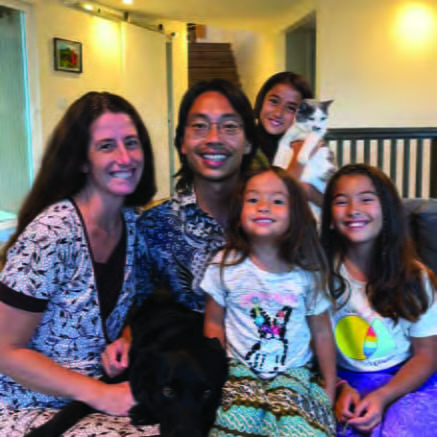
Rachel and I have dedicated our careers to improving women and children’s health. We admire PIH’s approach of addressing health care disparities and the underlying structural and historical injustices that have led to them.
I first met Dr. Farmer in 2003 when I was a medical student at Boston Children’s Hospital, and his work helped inspire me to obtain my MPH degree in health policy. Dr. Farmer’s work also played a role in Rachel’s decision to pursue a master’s degree in medical anthropology. It seems strange to feel such a kinship to a man we hardly knew—what a testament to how inspirational Dr. Farmer was and continues to be.
RACHEL TJOENG & DR. TIONG HAN
Honolulu, HI
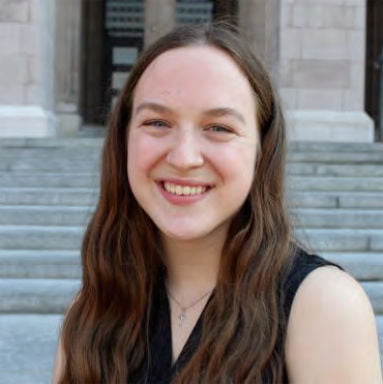
I joined PIH Engage after reading Mountains Beyond Mountains. After that, I read everything I could find by Paul. I was struck by his ideas about pragmatic solidarity, accompaniment, and care. His dedication to equity and the excellence he achieved in its pursuit were unparalleled. PIH Engage embodies this mission by bringing brilliant young minds together in the fight for health equity.
Before joining the University of Washington PIH Engage team, I had never contacted my members of Congress. Now, I regularly communicate with several offices on key public health issues. I’ve trained advocates nationwide, spoken at a vaccine equity conference, and facilitated over 50 meetings with Congressional offices where Engagers discussed the most ambitious global health legislation introduced in Congress — the Paul Farmer Memorial Resolution. Our PIH Engage community never ceases to amaze me.
CHLOE DAHLEEN
Seattle, WA
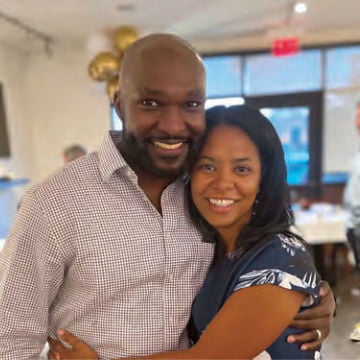
I read Mountains Beyond Mountains before going to medical school and was inspired to know that one person’s passion for helping others could blossom into a global movement. We visited University Hospital in Mirebalais when it was under construction and knew that our family wanted to play a role in ensuring people in the community could access lifesaving care.
We realize with our family situation and safety concerns in Haiti presently, the most impactful and sustainable way for us to support healthcare needs and promote health equity is as donors to PIH.
PIH has roots and commitment to the people of Haiti and refuses to turn their back on its mission. The PIH staff is resolute in their role in building local capacity and expertise. As an emergency physician, I want to help PIH bring the kind of care to the people of Haiti that I seek to provide to my patients in Central Florida.
BAUDELAIRE ST. LOUIS & TRACY MACINTOSH
Kissimmee, FL
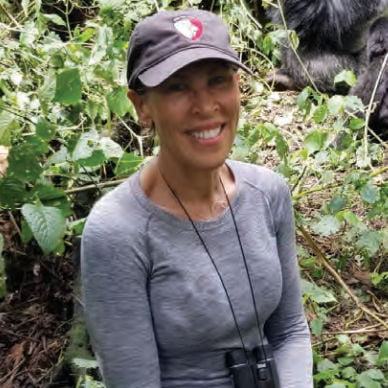
I have traveled to PIH sites in Haiti, Liberia, and Rwanda, and seeing PIH’s impact on patients firsthand is incredible. The mission statement of The Haley Foundation includes support for maternal and child health and welfare. So visiting the maternal waiting home for new moms in Mirebalais, Haiti was especially powerful. The success of this important work is the reason I became a donor.
For the past few years, I have designated my donation to the Liberian effort. I was able to visit the maternal hospital in Liberia as it was being built and it has been wonderful to witness PIH serving moms and babies today! The gratitude shown by the patients brought tears to my eyes. Each PIH facility is built with beauty and comfort along with advanced medical care. I appreciate that respect for patients and their families always comes first.
MELISSA HALEY
Boynton Beach, FL
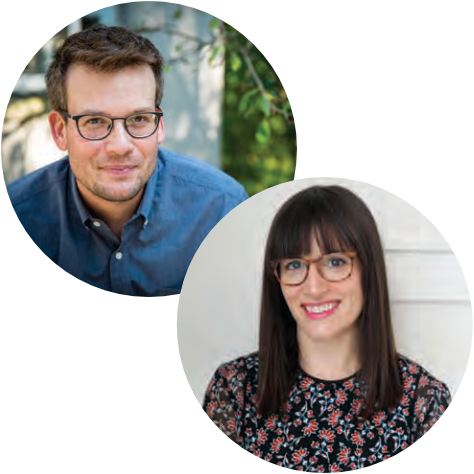
There is nothing inevitable about the fact that women in Sierra Leone are hundreds of times more likely to die in childbirth than women giving birth in Germany or Sweden. That reality is the result of historical forces—enslavement, colonialism, racism, and war—and we know that this injustice has a cure. That’s why PIH is building the Maternal Center of Excellence at Koidu Government Hospital in Sierra Leone. The MCOE will radically reduce maternal and child mortality while also serving as a teaching hospital for the next generation of nurses, doctors, and midwives.
We really value the way PIH takes an expansive view of healthcare, acknowledging the role that nutrition, wellness, and mental health play in global health. One of us (John) has lived with serious mental illness his whole life, so seeing PIH expand access to mental health treatment is really heartening. The difference between PIH and other organizations is that PIH doesn’t just show up—they stay.
JOHN & SARAH GREEN
Indianapolis, IN
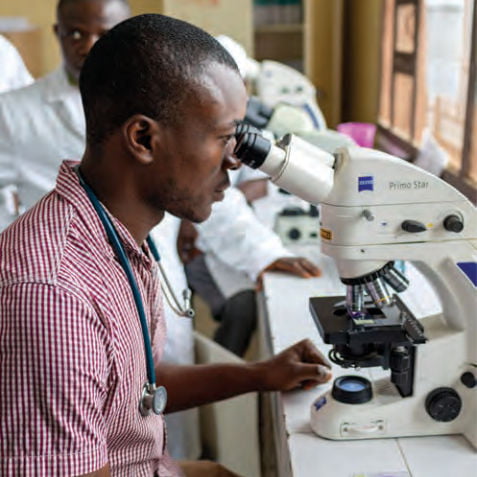
Takeda Pharmaceuticals has been a long-term supporter of PIH’s work in communities and is now partnering to build laboratory capacity across PIH’s global network. Through this knowledge-sharing partnership, Takeda will support PIH in its efforts to build diagnostic capacity in low-resource settings to provide more accurate, reliable, and timely diagnoses for patients and clinicians. Takeda and PIH staff will collaborate on concrete projects, benefitting from Takeda’s technical expertise, resourcing, and partnership—strengthening care delivery across PIH. Ultimately, well-equipped labs with trained and skilled staff and strong operational management systems will translate to better care for patients and stronger, more equitable health systems.
In fiscal year 2022, PIH received $335.3 million in revenue, a 7% increase over fiscal year 2021, which was driven by an increase in individual and family foundation gifts. Fiscal year 2022 revenue was comprised of $226.6 million from individuals and family foundations (68% of total revenue), $74.9 million from governments and multilateral organizations (22% of total revenue), and $24.2 million from foundations and corporations (7% of total revenue). In addition, PIH received $9.5 million in gifts in kind and other income (3% of total revenue).
PIH expenses decreased from $282.6 million in fiscal year 2021 to $243.5 million in fiscal year 2022. This $39.1 million change was driven by a decrease in COVID-19 response efforts in the United States. In fiscal year 2022, 90% of funds were for direct program costs and 10% went to fundraising and administration.
Thanks in part to significant one-time contributions, PIH ended the fiscal year with a $91.8 million operating surplus. These resources are funding the current fiscal year’s lifesaving projects and fueling future innovation. We continue to rely on support from donors like you to fulfill our commitment to our communities and patients.
By establishing long-term relationships with sister organizations around the world, Partners In Health strives to achieve two overarching goals: to bring the benefits of modern medical science to those most in need and to serve as an antidote to despair. We draw on the resources of the world's leading medical and academic institutions, and we are guided by the lived experience of the world's poorest and sickest communities. At its root, our mission is both medical and moral. It is based on solidarity, rather than charity alone. When our patients are ill and have no access to care, our team of health professionals, scholars, and activists will do whatever it takes to make them well—just as we would do if a member of our own families or we ourselves were ill.